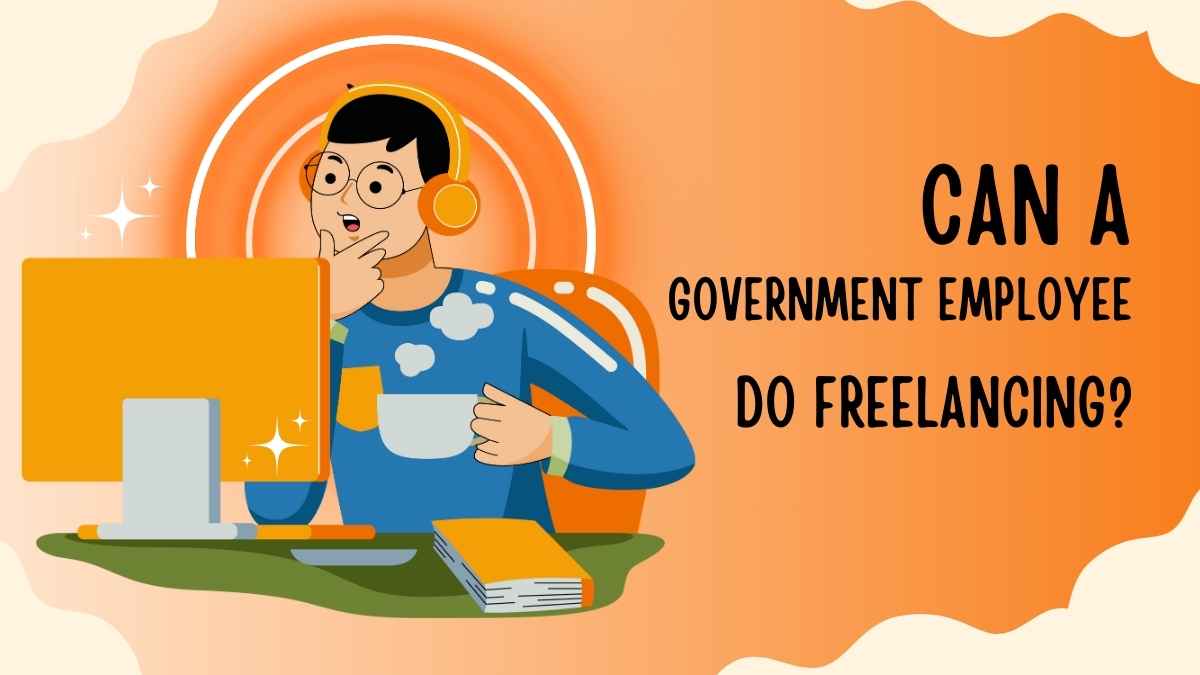Government employees often explore opportunities beyond their regular duties to supplement their income or pursue professional passions. One such avenue is freelancing, which allows individuals to offer their skills and services on a flexible basis. However, engaging in freelancing as a government employee raises important legal, ethical, and practical considerations. This article delves into the complexities of government employee freelancing, examining the regulations, challenges, and strategies necessary to balance public service responsibilities with external freelance work.
Overview of Government Employee Freelancing
Definition of Freelancing
Freelancing is a work arrangement where individuals provide services on a project basis, typically outside a traditional employer-employee relationship.
Rising Trend of Government Employee Freelancing
In recent years, more government employees have turned to freelancing to supplement their income or pursue personal interests outside their regular jobs.
Legal and Ethical Considerations
1. Government Regulations on Outside Employment
Government regulations regarding outside employment vary. It is crucial to understand and comply with the specific rules and restrictions set by the employing agency.
2. Ethical Implications of Dual Employment
Freelancing as a government employee may raise ethical concerns, such as potential conflicts of interest or divided loyalties. Transparency and integrity are essential to navigating these issues.
Conflict of Interest and Disclosure Requirements
1. Identifying Potential Conflicts of Interest
Government employees must be vigilant in identifying conflicts of interest, especially if freelance work overlaps with their official duties.
2. Disclosure Protocols for Freelancing Activities
Many government agencies require employees to disclose outside employment activities to ensure transparency and prevent conflicts of interest.
Time Management and Work-Life Balance
1. Challenges of Juggling Multiple Work Commitments
Balancing a government job with freelancing can be demanding, potentially leading to time constraints and burnout. Effective management is crucial to avoid overload.
2. Strategies for Maintaining Work-Life Balance
To maintain a healthy balance, set clear boundaries, prioritize tasks, and incorporate self-care practices to manage stress and ensure overall well-being.
Impact on Job Performance and Employer Perception
1. Evaluating the Effects of Freelancing on Government Job Performance
Freelancing may affect job performance by requiring additional time and focus. Government employees must ensure their freelance work does not interfere with their official duties.
2. Managing Perceptions and Building Trust with Employers
Open communication with employers about freelancing activities is critical. Transparency builds trust and assures employers that the commitment to public service remains intact.
Benefits and Challenges of Freelancing as a Government Employee
1. Advantages of Freelancing for Government Employees
Freelancing provides additional income, skill development opportunities, and a chance to pursue passions outside regular work. It can also enhance professional networks and offer a creative outlet.
2. Common Challenges Faced by Government Employee Freelancers
Balancing freelancing with a full-time job poses challenges such as time management, conflicts of interest, and maintaining work-life balance.
Strategies for Success in Balancing Government Work and Freelancing
To find the best platforms for starting your freelancing journey, explore our detailed guide on freelancing platforms.
1. Effective Time Management Techniques
Prioritize tasks, set realistic goals, and establish a structured schedule. Tools like calendars and task managers can help stay organized.
2. Communication and Collaboration with Employers
Maintain clear communication with government employers and freelance clients. Set expectations early and provide updates on availability to ensure smooth coordination.
Recommendations
Summary of Key Points
Balancing a government job with freelancing requires careful planning, communication, and time management. While it offers significant benefits, it also presents challenges that must be addressed proactively.
Guidelines for Government Employees Considering Freelancing
Government employees considering freelancing should ensure their activities do not conflict with official duties. Adhere to all regulations and policies, maintain professionalism, and seek guidance from HR or supervisors when necessary.
Final Thoughts
The landscape of government employee freelancing is multifaceted, requiring careful navigation of regulations, ethical considerations, and time management. With awareness, diligence, and proactive communication, government employees can successfully balance their roles in public service with freelance pursuits.
FAQ’s
Yes, but they must comply with their agency’s regulations and disclose any freelance activities as required.
Conflicts may arise if freelance work intersects with official duties or involves entities related to their government role.
By prioritizing tasks, setting clear schedules, and using organizational tools.
Yes, consult your agency’s policies, disclose activities transparently, and ensure no conflict with your official responsibilities.
